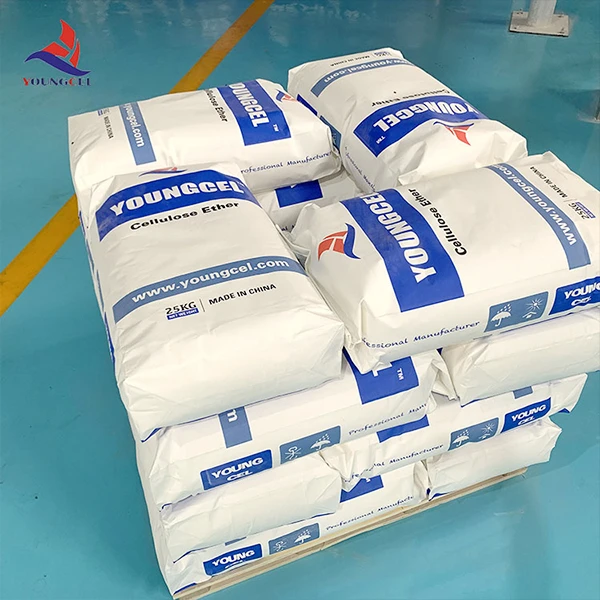Hydroxyethyl Methyl Cellulose for Liquid Soaps A Comprehensive Overview
In recent years, there has been an increasing interest in the use of hydroxyethyl methyl cellulose (HEMC) in various cosmetic and personal care formulations, particularly in liquid soaps. This naturally derived polymer, which belongs to a class of cellulose ethers, offers a range of properties that enhance the performance and appeal of liquid soap products. This article explores what hydroxyethyl methyl cellulose is, its benefits, and its applications in liquid soaps.
What is Hydroxyethyl Methyl Cellulose?
Hydroxyethyl methyl cellulose is a water-soluble polymer synthesized from cellulose, a naturally occurring carbohydrate found in the cell walls of plants. The cellulose is chemically modified to introduce hydroxyethyl and methyl groups, increasing its solubility in water and enhancing its thickening, stabilizing, and film-forming properties. HEMC is commonly used in various applications, including food, pharmaceuticals, and cosmetics.
Benefits of HEMC in Liquid Soaps
1. Thickening Agent One of the primary uses of HEMC in liquid soaps is as a thickening agent. Liquid soaps often require a certain viscosity to ensure ease of use and appealing aesthetics. Hydroxyethyl methyl cellulose assists in achieving the desired thickness without compromising the product's flowability, making it easier for consumers to dispense.
2. Stability Enhancer Emulsions in liquid soaps can be prone to separation over time. HEMC acts as a stabilizer, preventing phase separation and ensuring that the product remains uniform throughout its shelf life. This stability is crucial for maintaining the quality and effectiveness of liquid soaps.
3. Improved Texture In formulation, texture plays a vital role in consumer perception and satisfaction. Hydroxyethyl methyl cellulose contributes to a smooth, silky feel, enhancing the overall user experience. Consumers tend to prefer products that glide effortlessly on the skin, and HEMC helps achieve this desirable sensation.
hydroxyethyl methyl cellulose for liquid soaps

4. Moisturizing Properties HEMC provides some moisture-retaining properties, making liquid soaps more skin-friendly. This can be particularly beneficial for individuals with sensitive or dry skin, as HEMC helps to prevent excessive drying out that can occur with regular soap use.
5. Compatibility with Other Ingredients Another advantage of HEMC is its compatibility with a wide range of surfactants, colorants, and fragrances, which are commonly found in liquid soap formulations. This versatility allows formulators to create customized products that meet various consumer needs without encountering issues related to incompatibility.
6. Environmental Considerations As consumers become increasingly aware of environmental issues, the demand for natural and eco-friendly ingredients rises. Since HEMC is derived from cellulose, it presents a more sustainable option compared to synthetic polymers. This natural origin appeals to consumers looking for greener personal care products.
Applications of HEMC in Liquid Soaps
The incorporation of hydroxyethyl methyl cellulose into liquid soap formulations can be observed across various product types, from antibacterial hand washes to luxurious body cleansers. Manufacturers often use HEMC in combination with other ingredients to formulate products that offer unique characteristics, such as enhanced foaming properties or specific therapeutic benefits (e.g., anti-inflammatory or moisturizing effects).
Moreover, HEMC's versatility allows it to be used in solid soap bars as well, although its primary application remains in liquid formulations. As the personal care market continues to evolve, HEMC may play a significant role in the development of innovative soap products tailored to meet diverse consumer demands.
Conclusion
Hydroxyethyl methyl cellulose stands out as a versatile and reliable ingredient in the formulation of liquid soaps. Its ability to act as a thickener, stabilizer, and skin-conditioning agent makes it an invaluable addition to personal care formulations. As consumers continue to seek high-quality, effective, and environmentally friendly products, HEMC will likely remain a key player in the soap industry. By leveraging the advantages of hydroxyethyl methyl cellulose, manufacturers can create liquid soaps that not only provide cleansing benefits but also offer an elevated user experience, aligning with modern consumer preferences.
-
The Application and Significance of Construction RdpNewsMay.19,2025
-
Industrial Grade HpmcNewsMay.19,2025
-
Building Coating Adhesive Building Coating Adhesive HpmcNewsMay.19,2025
-
Application Of Hpmc For Detergent For Detergent In DetergentsNewsMay.19,2025
-
Application Of Hpmc Cellulose In Cement-Based MaterialsNewsMay.19,2025
-
Application Of High Quality Hpmc For Construction In The Field Of ConstructionNewsMay.19,2025




